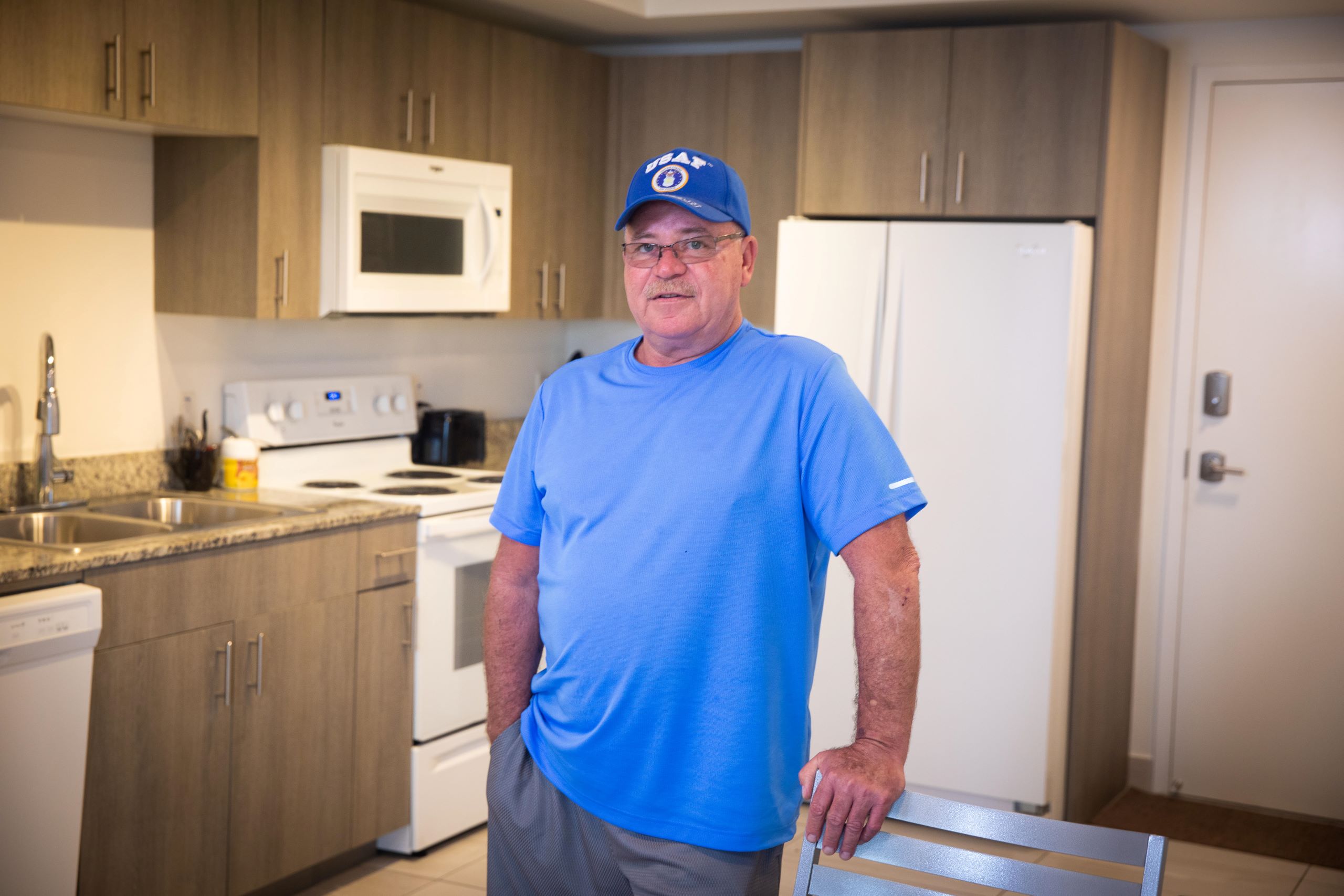For a Veteran Who Lost Everything
For a veteran who lost everything, a new home, provided by Carrfour Supportive Housing, offers new beginnings.
Brian Olesen has safe, stable housing today – in an apartment that he calls “unbelievable.” But it hasn’t always been that way for this formerly homeless veteran.
For Olesen, like so many others who have struggled with homelessness, losing nearly everything was less of a sudden explosion and more like a “drip, drip, drip.” He served as a rescue medic in the U.S. Air Force from 1976 to 1984 and was a former gymnast, springboard diver and trick water skier. In the military, he rescued countless others. Out of the military, he found it hard to save himself, as he tried to navigate the many obstacles of his civilian life.
Today, at 62, Olesen is proof that veterans’ homelessness is a problem that can be overcome. He lives in a fully furnished studio apartment at Karis Village, an 88-unit community in Goulds, Fla., in Miami-Dade County, which opened in March 2018. Half of its apartments were set aside for at-risk veterans transitioning from homelessness.
Karis Village was developed by Carrfour Supportive Housing, with the help of an $8 million construction loan and $25 million in Low- Income Housing Tax Credits (LIHTC) purchased by Capital One. “Our intent when we were designing Karis Village was to really focus on the homeless vets in our community,” said Carrfour’s President and CEO Stephanie Berman-Eisenberg. “We’ve prioritized vets the past few years in order to help end veterans’ homelessness here in
South Florida.”
Olesen became homeless in 2013 after hip replacement surgery left him unable to work, but he had struggled for some time. A divorced father, Olesen spent ten years sleeping on air mattresses and staying with friends. “I couldn’t afford my car, my apartment, and my child support – so I paid the child support,” he explained.

After his hip replacement, several evictions and the repossession of his car followed. He became homeless and struggled with alcohol addiction. Operation Sacred Trust, a Florida-based organization that works to improve housing stability for low-income veteran families, helped get Olesen into a transitional housing facility called Keystone Halls, where he lived for nearly a year.
Olesen’s story is a familiar one to Berman- Eisenberg. “Being able to come back [from military service] and resume your normal life is challenging,” she said. “Mental illness, physical disabilities...older vets, when they came back decades ago, none of these challenges were addressed. A lot of those unaddressed issues surfaced later.”
To help blunt the impact of these challenges, Capital One augmented its construction loan and LIHTC purchase with a $250,000 social purpose grant to Karis Village. Distributed over a ten-year period, funds support services designed to keep residents like Olesen healthy, active and in their new homes. For Olesen, the services he has most accessed take the form of counseling to help him navigate systems at Karis Village and the
U.S. Department of Veterans Affairs (VA). He also relies upon a full-time building manager that the Capital One grant makes possible.
At Karis Village, he feels he has the support that he needs. He describes the apartment itself in terms that frame it as transformational.
While the challenges associated with building affordable housing and successfully housing veterans can be daunting and complex, Olesen serves as proof that Capital One can make a difference.
“Karis Village saved me,” he said. “The whole point of the building is support. Anything I need, it is taken care of. Capital One gave a safe place for 88 people who would have been on the street.”